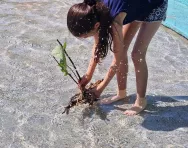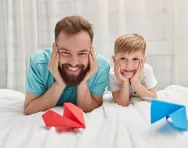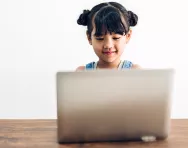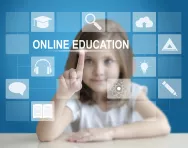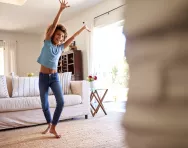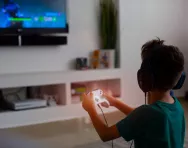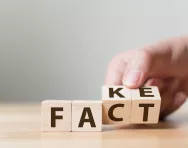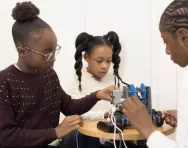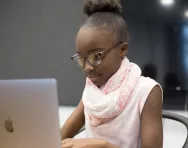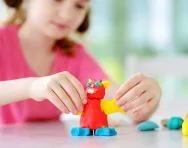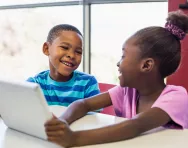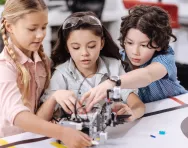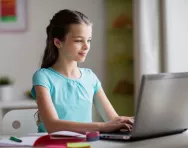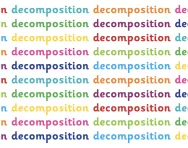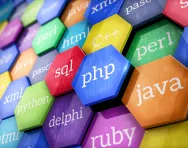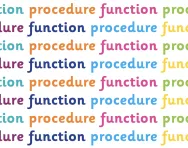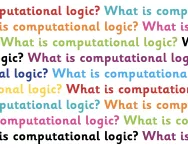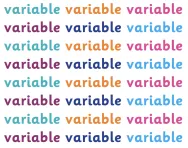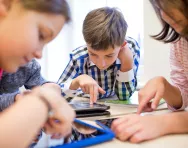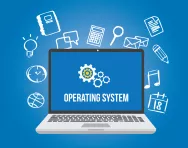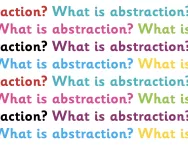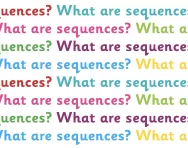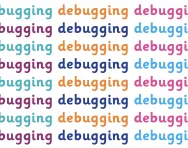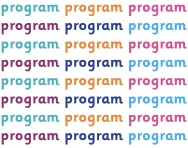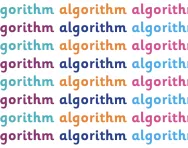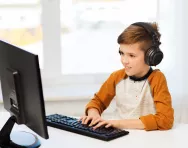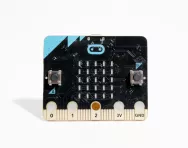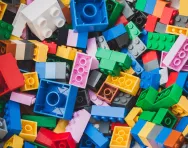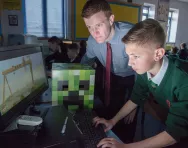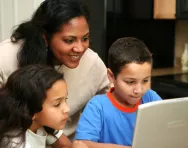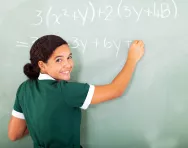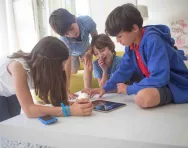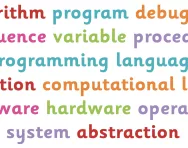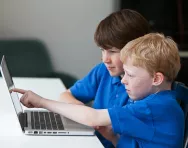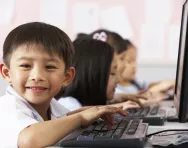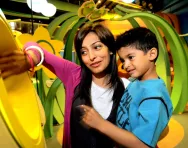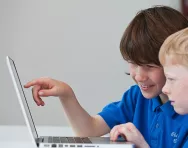Computing and ict articles
Fun STEM activities for World Environment Day 2024
World Environment Day is just around the corner, and we've got a fantastic way for you and your kids to celebrate: dive into some fun STEM activities! It’s not just about learning science, technology, engineering, and maths— it’s about sparking curiosity and inspiring creativity, all while helping the planet.
6 parent-friendly STEM activities
Supporting children to develop their STEM (Science, Technology, Engineering, Mathematics) skills is becoming increasingly important. It’s a necessary element in children’s education but can be intimidating for many parents who may not know where to begin or how to help with their child’s STEM learning.
Coding benefits for kids
Why is your child learning to code in primary school and why is coding an important skill for their future? We asked the experts at Bright Little Labs to explain why coding can and should be a part of a complete education for a modern child, and how to mix coding, stories, art and fun.
Best coding home education resources
From Minecraft modding to block coding, Python programming and robot building, your child's computing education doesn't need to stop during school closures. Whether they're new to coding or an experienced programmer, we've picked the best resources available online to keep them engaged and learning.
12 of the best home learning websites for kids
We've rounded up some of our favourite online resources to support your child's learning at home.
20 of the best live streams for kids
Help your primary-age child stay educated and entertained with our round-up of the best live streams for kids.
The parents’ guide to safe gaming
How can you make sure your child plays safely online? Read our parents' guide to safe gaming for primary-school children for expert tips to help you manage the risks.
How to help your child spot fake news
How good is your child at telling what’s true and what isn’t? We take a look at how to help them develop digital literacy and identifying "fake news" in our connected world.
Best coding apps for kids
With computer coding on the National Curriculum from KS2 up, help your child get a headstart with these programming apps.
How to help your child become a good digital citizen
As our kids spend increasing amounts of time immersed in technology, how can we help them stay safe and behave responsibly?
Best activity books for children
Whether you're on the move or at home, a great activity book offers hours of screen-free learning and fun. Crosswords, maths challenges, mystery solving and code writing are all covered in our best activity books for kids picks. We can't guarantee you won't want to help out with the puzzling, though!
3 easy animation activities for kids
Making your own animations needn’t be a daunting prospect – creating simple but effective animations with even the most basic artistic skills has never been easier! Children (and parents!) can have great fun making up characters and seeing them come to life, and the brilliant results might just surprise you! Trevor Young, author of animated eBook Galdo's Gift, has tips to get you started.
Online safety rules every parent should follow
Do you worry that you're not doing enough to keep your child safe online? Are you overwhelmed by all the apps, games and websites they want to visit and despair of keeping on top of it all? Alicia Coad, founder of family messaging app ChatFOSS, offers her top online safety tips for busy parents.
How to future-proof your child's learning
Is your primary-school child getting the education they'll need to thrive in the 21st century? Jill Hodges, CEO and Founder of Fire Tech technology classes and camps for kids, describes the five skills young people will need, at work and in life, to make the most of our technological society's opportunities.
18 reasons your child should learn touch-typing
Just 20 minutes of practice a day could be enough to make your child a fluent touch-typist in as little as 10 weeks. We explain why confident, fast typing skills are an essential skill for all primary school children.
Touch-typing is one of those skills that, along with shorthand, seemed to go out of fashion as women began to embrace careers beyond the secretarial. But while you might have a mental image of rows of well-groomed young ladies sitting behind their manual typewriters, touch-typing is far from an outdated practice. In fact, typing could be one of the most valuable skills your primary school child will ever learn.
Touch-typing is one of those skills that, along with shorthand, seemed to go out of fashion as women began to embrace careers beyond the secretarial. But while you might have a mental image of rows of well-groomed young ladies sitting behind their manual typewriters, touch-typing is far from an outdated practice. In fact, typing could be one of the most valuable skills your primary school child will ever learn.
What is decomposition?
Decomposition in computer programming explained by TheSchoolRun's Billy Rebecchi, with details of how children are taught to decompose programs in the KS1 and KS2 classroom.
What is a programming language?
Children are introduced to simple programming languages as early as KS1. Understand how your child will start to use drag-and-drop programming like Scratch with our guide to programming languages in the primary-school classroom. By Billy Rebecchi
What are procedures and functions?
Brilliant primary-school programmers are introduced to procedures and functions in Year 5 and Year 6. TheSchoolRun's Billy Rebecchi explains what your child might learn about these advanced building blocks of code in our parents' guide.
What is computational logic?
Thanks to computational logic, or computational thinking, we can work step-by-step to understand a problem and develop a solution. Children are first introduced to this skill in the KS2 classroom, as TheSchoolRun's Billy Rebecchi explains.
What is a variable in computing?
Find out how variables are used in computing and how they are introduced in the KS2 classroom in our parents' guide to variables.
9 screen time activities you don’t need to feel guilty about
Not all screen time is bad for your child. We’ve rounded up nine great activities that’ll help them make the most of their laptop, tablet or phone.
What are hardware, software and Operating Systems?
Hardware (the physical parts of a computer), software (the programs that can be run on a computer) and the Operating System that allows software and hardware to communicate: TheSchoolRun's Billy Rebecchi explains what your child learns in KS1 and KS2 computing and how you can develop their understanding at home.
What is abstraction in computing?
Abstraction is an important part of programming. Find out how children are introduced to this tricky concept in KS2 computing and how you can develop their understanding at home.
What is a sequence in computing?
Understanding sequences is vital in computing. Our parents' guide explains how children learn about sequences in algorithms and programs in KS1 and KS2 computing. By Billy Rebecchi
What is debugging?
The debugging cycle in computer programming explained by TheSchoolRun's Billy Rebecchi, with details of how children are taught to debug programs in the KS1 and KS2 classroom.
What is a program?
Programming in the primary-school classroom: TheSchoolRun's Billy Rebecchi explains how children learn about programs in KS1 and KS2 and how programmable floor robots are used in primary computing.
What is an algorithm?
Algorithms are a set of instructions to complete a task. We explain everything primary-school parents need to understand about algorithms, how they are used to write computer programs and how children will be introduced to them in the KS1 and KS2 classroom. By Billy Rebecchi
Positive screen time for children
Despairing of how much time your child spends glued to their laptop, tablet or phone? Here's how to help them get the most out of their screen time
What is the BBC micro:bit?
We explain what the BBC micro:bit computer coding device is all about – and put it to the test.
Learning through LEGO
Is your child obsessed with LEGO? Here’s how it could give their learning a boost.
Learning through Minecraft
You may think it’s just another video game – albeit a particularly addictive one – but Minecraft could have educational benefits too…
School social media policies explained
With cyber safety and online bullying becoming increasingly problematic, many schools are adopting social media policies. But what do these documents actually do?
Best children's books about coding
How confident do you feel about supporting your child's interest in coding at home? Whatever your child's (or your!) level of knowledge, these books will take you through the basics with screenshots, step-by-step illustrations and plain English explanations about Scratch, Python and the basics of computational thinking and programming. You're just a few pages away from coding your first game...
Science, technology, engineering and maths for girls
As STEM industries consider how to combat a future skills shortage, could your daughter one day become an expert in the field?
Best coding toys for children
Turn screen time into a super-powered learning experience with a new generation of coding toys. Your child will learn programming skills as they play, as well as the basics of computational thinking (and hopefully how to fix your IT problems, too!). We asked programmer, tech-expert and mum, Claire Wardle, as well as other parents, to put the toys to the test and share their findings.
Primary school computing and ICT glossary for parents
Do you know what your child means when they're talking about compiling algorithms and debugging programs? Computing teacher Billy Rebecchi explains the primary school computing and ICT terms that you might hear from your KS1 or KS2 child.
What your child learns in Key Stage 2 computing
In Years 3 to 6, computing lessons are a key part of the curriculum. Here’s what your child will learn in KS2.
What your child learns in Key Stage 1 computing
Computing is an essential skill for all children to learn, and an important part of the curriculum. Here’s what your child will be taught in Years 1 and 2.
Museums reviewed by parents: Eureka!
One of the best children's museums in the world, Eureka! is packed with hundreds of hands-on exhibits designed to inspire children to learn through play. Our family testers were amazed at what's on offer and determined to be regular visitors in the future.
Primary school coding explained for parents
Computer code classes, part of the 2014 primary curriculum, aim to teach kids not to be simply users of technology, but creators of it too. Kate Yelland explains what parents need to know.
